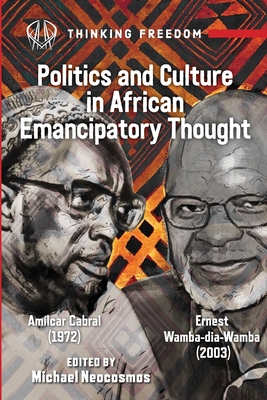Neocosmos, Michael: - "* Michael Neocosmos is Emeritus Professor in the Humanities at Rhodes University, South Africa. * Amílcar Cabral was a Bissau-Guinean and Cape Verdean agricultural engineer, pan-africanist, intellectual, poet, theoretician, revolutionary, political organizer, nationalist and diplomat. He was one of Africa's foremost anti-colonial leaders. Also known by the nom de guerre Abel Djassi, Cabral led the nationalist movement of Guinea-Bissau and Cape Verde Islands and the ensuing war of independence in Guinea-Bissau. He was assassinated on 20 January 1973, about eight months before Guinea-Bissau's unilateral declaration of independence. He is an inspiration to revolutionary socialists and national independence movements worldwide. * Ernest Wamba dia Wamba (1942 - July 15, 2020) was a prominent Congolese academic and political theorist who became a commander of the Kisangani faction of the rebel Rally for Congolese Democracy. In 1980, he accepted a position as Professor of History at the University of Dar es Salaam in Tanzania. In 1981, while visiting his parents' village in Zaire, he was arrested by the government of Mobutu Sese-Seko for possessing a paper he had authored that was deemed 'subversive', and was detained for one year. He continued his role as a prominent figure in both academia and political circles in Africa. He is the former president of the Council for the Development of Social Science Research in Africa (CODESRIA) as well as the founder and president of the philosophy club at the University of Dar es Salaam. He was an expert in the Palaver (politics) and other indigenous forms of African democracy. He participated in the Sovereign National Conference, held from 1990 through 1992 in Zaire. In December 1997, Wamba was named a recipient of the Dutch Prince Claus Award for Culture and Development. The announcement of the award cited his "scholarly contribution to the development of African philosophy and for sparking off the philosophical debate on social and political themes in Africa." At this time he also worked closely with Tanzanian President Julius Nyerere to end the Burundi Civil War."










